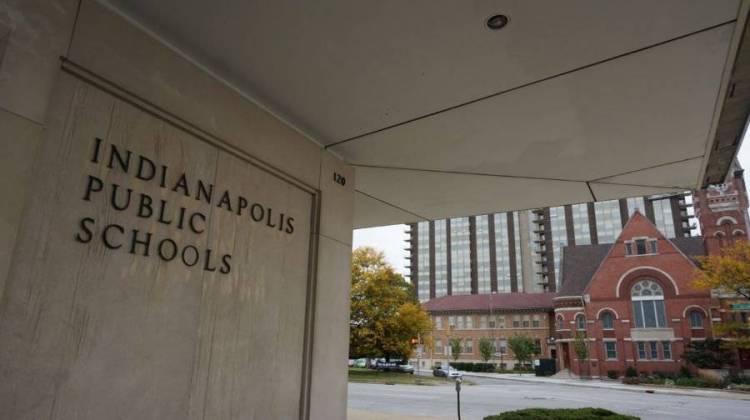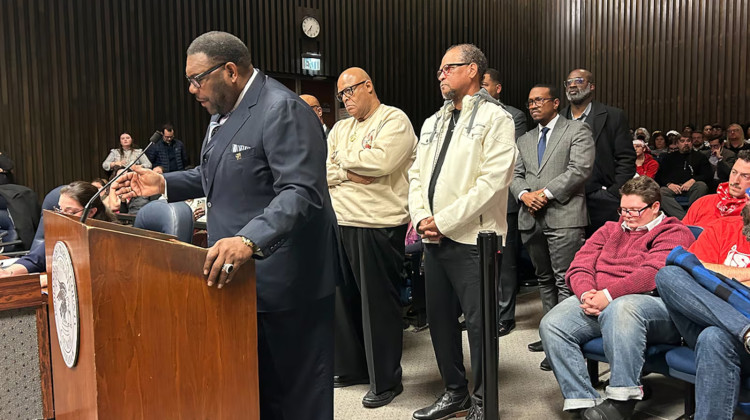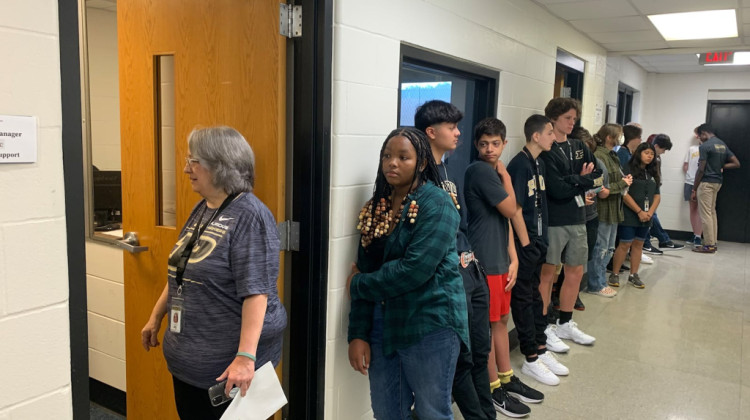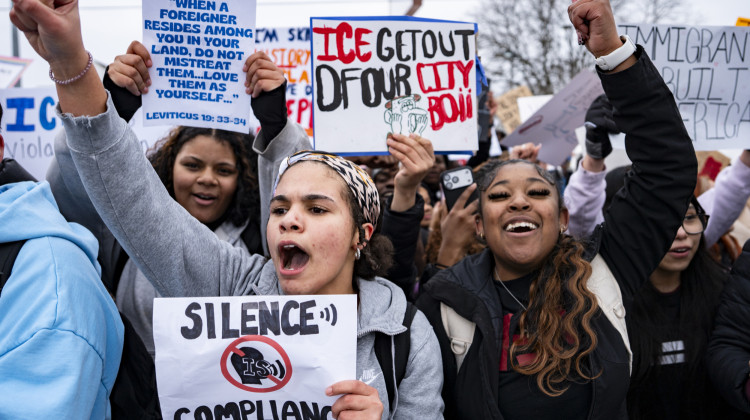
Currently, ten of Indianapolis Public Schools' 43 directly managed district schools do not have an assistant principal.
WFYI NewsMore than 40 schools at Indianapolis Public Schools will be required to have an assistant principal next year, after district leaders tweaked how money is allocated to each school.
A pool of $5.5 million already in the budget will now be restricted for only paying assistant principal salaries. District leaders say this will allow all principals to focus more heavily on ensuring district wide goals in academic and social-emotional learning, while assistants provide classroom and in-school operational support.
An assistant principal would be responsible for instructional leadership, such as classroom teaching assistance for educators, handling student discipline and overseeing COVID-related issues, such as contract tracing.
School leaders without an assistant principal, said Chief Schools Officer Nathalie Henderson, are straddled with operational details like school bus departures and trying to balance the academic needs and goals.
“The principals need assistance in school and structural leadership,” Henderson said.
Previously, schools with at least 400 students could receive funding to hire an assistant principal but were not required to use the money to create the position. Instead, the funding could go toward other support staff. Currently, ten of 43 directly managed district schools do not have an assistant principal.
District charter school partners and innovation schools are not part of this new plan.
Thursday the IPS Board of School Commissioners unanimously approved the assistant principal plan and other changes to the student-based allocation model. It was the board’s last meeting of the year.
The allocation for next year is $110 million -- that’s $2 million less than the current year. Weston Young, chief financial officer, told the board that is due to cash flow projections.
A fund for operating expenses will increase from $7.4 million to $10 million, to better support small schools.
The district’s student-based allocation is a formula to divy up funding to each school based on enrollment and additional money for other factors, such as the number of students from low-income families and students who speak English as a second language. Supplemental funding is also provided for each preschool student.
The idea is to provide schools with appropriate funding based on the students who attend each school. Magnet schools receive additional funds to help pay for programming.
IPS switched to that funding model in 2017 to increase equity and transparency for how each school is funded. The model also allows school leaders to decide how some funding is spent to meet student needs.
“More dollars go to schools with principal and school leadership decision making,” Young said.
Yet all of this hinges on how state lawmakers will create a two-year state funding budget in the upcoming General Assembly in wake of tax-revenue drops due to the pandemic. This week Senate Appropriations Chair Sen. Ryan Mishler (R-Bremen) said he is preparing for a flatline schools budget rather than cuts based on the latest state revenue forecast.
Thursday also marked the final meeting for IPS board chairman Michael O’Connor and Elizabeth Gore. O’Connor did not run for reelection for District 1. Will Pritchard will assume that seat next month along with at-large challenger Kenneth Allen, who ousted Gore in the four-way race.
Contact WFYI education reporter Eric Weddle at eweddle@wfyi.org or call (317) 614-0470. Follow on Twitter: @ericweddle.
 DONATE
DONATE







 Support WFYI. We can't do it without you.
Support WFYI. We can't do it without you.